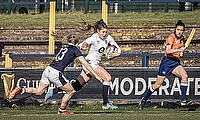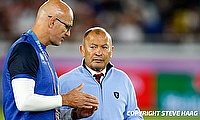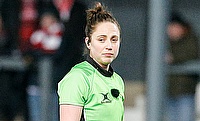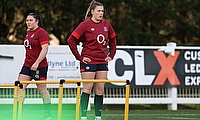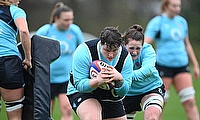TRU Talks: Jessica Hayden on the Rugby World Cup postponement and more
On our latest TRU Talks, Joe Harvey spoke to freelance rugby journalist Jessica Hayden about the 2021 Rugby World Cup which is set to be delayed by a year.
World Rugby's recommendation came on Wednesday night, with the governing body citing the uncertainties of Covid-19 as a major reason for postponing the tournament.
Furthermore, following recent discussions between World Rugby, New Zealand Rugby, the New Zealand Government and the participating unions, those parties feel as though it is not possible to deliver the environment for all teams to be the best they can be on the sport’s biggest platform.
A key reason for this is the travel restrictions to New Zealand at present. With one of the lowest Covid-19 infection rates in the world, plenty have been looking at the country with envy as they have moved back to some semblance of normality compared to the rest of the world.
A large reason for the low infection rates is thanks to the strict travel rules, with only New Zealand citizens, Australian citizens - whose primary residence is in New Zealand - and air crews being allowed into the country, with those people having to isolate for 14 days.
In addition to these non-rugby factors, there are still three spots up for grabs in the tournament. The likes of Ireland, Scotland, Japan, Hong Kong and Spain are still in with a shout of getting on a plane to the southern hemisphere next September.
In TRU Talks, RugbyPass’s Women’s Rugby Columnist, Jessica Hayden, says she feels that the decision to postpone could be beneficial given the current global climate.
“Obviously, World Rugby and New Zealand have to think about the Covid situation that is ongoing, and no one seems to have any control over it apart from New Zealand, and I’m sure they want to hold on to that as best as possible,” Jessica said.
“I think it is the correct decision at the moment because a lot of teams haven’t had the time that they need to prepare. There is a massive divide in women’s rugby, as you know, between the professional and the amateur athletes and the vast majority are amateur, so they haven’t really had the chance to prepare.
“There is also the key distinction between elite and non-elite teams, so if the government deems that the women’s national team is elite, they get extra rights in Covid, so they are able to travel whereas non-elite teams don’t get that, so there is also that divide we need to be aware of.
“In terms of the preparation that teams would get as well, it is really difficult to train at the moment with bubbles, especially when most women have full-time jobs as well.
"A quarter of the teams haven’t even qualified. We haven’t really heard about what is happening there. A lot of people are saying the Women’s Six Nations would double-up as the World Cup qualifiers, but we haven’t really had that much information on that, and as we were edging closer and closer to September, it just felt like it wasn’t going to happen.
“So, there are loads of issues around how the tournament would happen and that is just getting out there. That is what happens between now and the start of the tournament and then you have all the problems in the tournament of; what if someone catches covid? What do we do? Will New Zealand just say that’s it?
“They’ve only had, what, just over 2000 (2389) cases across the whole year or something? I don’t know, but I think it is around there, so if they have one case, they are going to put a lockdown on and that’s going to be so damaging for the tournament, especially because more people will be watching a women’s Rugby World Cup than ever before, so I think it is a really, really good decision to postpone it, so it can be the best Rugby World Cup that it can be.”
In the rest of the TRU Talks, Joe and Jessica discuss the recent postponement of the Women’s Six Nations, the #ICare movement, the work of Girls Rugby Club and recent social abuse directed towards BBC reporter Sonja McLaughlan.



